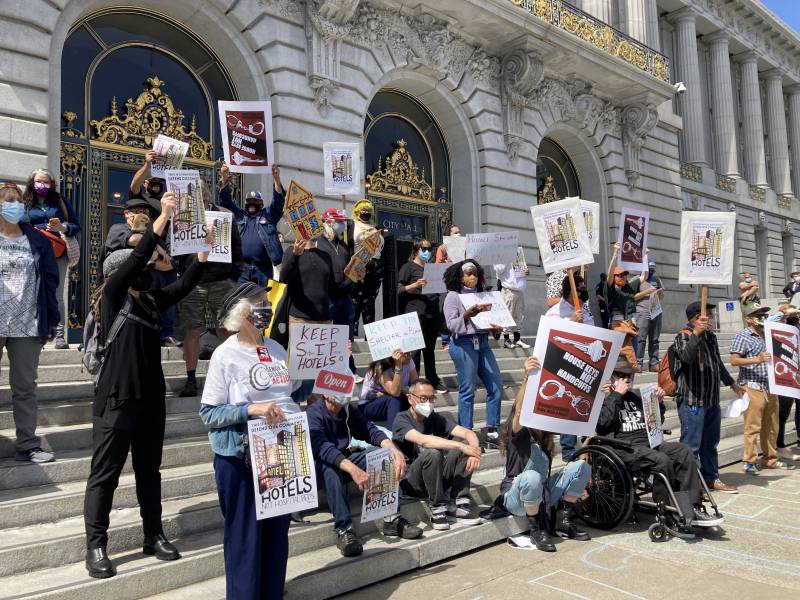Advocates for people experiencing homelessness in San Francisco are calling on the city to maintain its shelter-in-place hotel program and begin accepting people off the streets again.
A few dozen activists, who held a car caravan and rally outside City Hall Tuesday, praised the program, which has housed several thousand people experiencing homelessness in hotels since it began in April 2020 — and emphasized the need for its continuation, amid ongoing concern over the highly contagious delta variant.
“It’s pretty common knowledge that the delta variant is even more infectious than the original COVID variant, which created and brought people together to create these hotels,” said Lina Khouer, a UCSF medical student who’s part of a group called the Do No Harm Coalition, which helped organize the rally. “Right now we’re calling on the city to not close the hotels, but expand them to keep our communities safe and healthy.”
In June, as new COVID-19 infection rates in San Francisco plummeted, before the delta variant reared its head, the city’s Department of Homelessness and Supportive Housing began phasing out the hotel program, part of Project Roomkey, a statewide homeless relief initiative.
The city has so far closed five of 25 hotel locations, with another one scheduled to close at the end of this month. Officials say due to budget constraints, the city will continue incrementally shutting down hotels through the end of the program, slated for June 2022.

